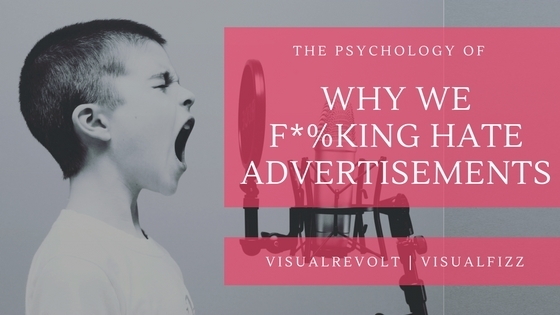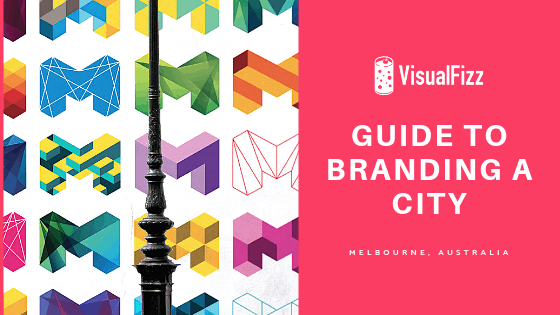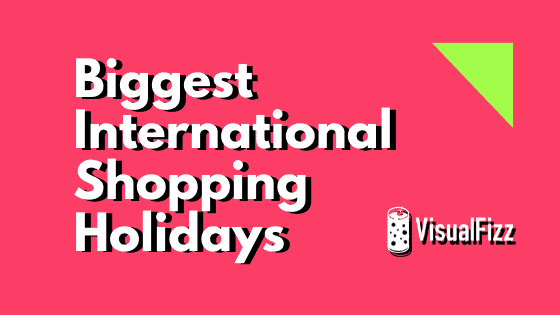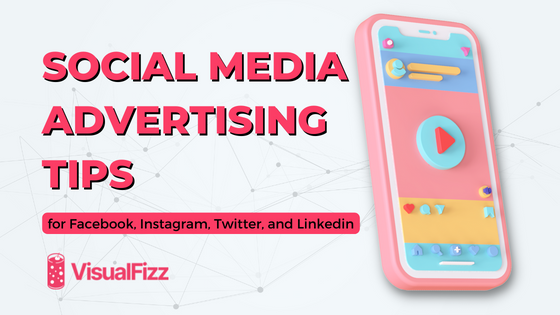
By Marissa Ryan
Categories for this post:The Psychology That Explains Why We Hate Advertising
One of the greatest con men in American history, George Parker, infamous for selling property he didn’t own, such as Madison Square Garden and the Statue of Liberty, once said, “The only people who care about advertising are the people in advertising.” George could not have been more on the money. No one cares about advertising. It’s 2017 and advertising is nearly everywhere you turn. Millions of dollars are spent every year on costly, intrusive and often downright obnoxious ad campaigns. Looking at you Quiznos.
Yet oftentimes those millions of dollars are wasted on those who couldn’t care less and on whom regularly take steps to vindictively avoid being advertised to. A study conducted by the Pew Research Center in 2013 discovered that nearly 30% of American-based Internet users regularly take steps to avoid online advertisements. Which places the perpetrators of those ads, the advertisers themselves, in the same demographic as hackers and Nigerian princes.
Why We Hate Advertisements
So why do we hate being advertised to? Thinking vs Feeling: the Psychology of Advertising, The standard textbook on modern advertising, would tell you that an emotional response to an ad has a far greater influence on a consumer’s intent to buy than the ad’s content does. Which is precisely the point – You could say that nowadays advertisers are eliciting powerful emotional responses out of consumers all the time. Just not the positive ones they are after. (*ahem*…pepsi)

There is a great resistance to advertisers today simply because buyers have become sick of being told what to buy. Amongst those deemed “digital natives”, the “Hard Sell” of the 1950’s is dead and the platform has changed. TV is no longer the primary medium for advertisers and as a result, social media has been bombarded by outdated companies attempting to reach a younger audience on a platform they hardly seem to understand. According to Rob Tarkoff, president and CEO of social content management firm Lithium Technologies, “you have these brands thinking they’re reaching the next generation of buyers, it might not actually be indicative of what people want in the future.”
RELATED CONTENT: MEASURING THE IMPOSSIBLE: TRACKING TACTICS FOR EXPERIENTIAL EVENTS
Reviews Are The New Word of Mouth
Researchers agree: A Harris Poll concluded that nearly 90% of Millennials would trust the word or review of a product by someone they trust or follow online rather than that of an ad campaign or the word of the brand compared to only 20% of those deemed “non-digital natives”, Baby-Boomers and Generation-X’ers. studies have also shown that younger generations of consumers, Millennials, for example, an age group that spends on average a trillion dollars a year, have begun to flee social media platforms where they feel they will be targeted by aggressive ad campaigns.
“I go on social media to see and know what my friends are doing. I don’t want to see ads clutter my news feed. If I’m interested in a product or service, I know where to look,” 23-year-old Mallory Benham, who participated in a poll conducted by marketing trend firm Invesp, said in a post-poll interview. “Social media is a place for us to connect with our friends, not be attacked by advertisements.”
Buyers don’t want to be annoyed, they don’t want to feel like they are getting scammed, and they don’t want to feel like they have been targeted. The consumer of today is constantly badgered by advertisers, on average consuming more than five thousand ads per day. Ads that come in banners, badges, and alerts have become so prevalent that the modern consumer has become blind to them. Ads interrupt our tv shows and videos while pretending to give you a choice as to which “ad experience” you would like to view. It got old fast, yet it appears to be getting worse as Facebook, Google and now Instagram blatantly cram consumers newsfeeds with invasive targeted ads.
Don’t Tell Your Audiences What To Do
Consumers don’t want to be told what to buy, they want to engage in a conversation about the products and issues that matter to them and which they value. It’s up to advertisers to create those organic conversations which lead to the emotional responses that drive results. In fact, a study conducted by the Event Marketing Institute concluded that “respondents were 96% more likely to purchase a product after participating in a live branded event and 74% will have a more positive impression of the brand.”
Experiential marketing, the way of the future, as some might call it, brings to consumers the positive emotional experiences that drive sales and brand recognition. A 2015 Event Track survey on the experiential marketing concluded that nearly 80% of brands saw 3:1 return on investment or more per event and 62% experienced an increase in brand recognition. Experiential marketing allows consumers to experience products with their senses in a world where virtually every stimulus is digital. Consumers who attend the event get to share their experience with their friends on social media the way social media was intended to be utilized, providing that person-to-person interaction that is absolutely critical to spreading a brand’s message and reaching more demographics than previously thought possible.
As buying patterns change along with the consumer data, useful analytics are key to operating a successful ad campaign. The consumer interaction inherent in experiential marketing campaigns allows for advertisers to track many key analytics such as Facebook likes, product sales, social media shares, as well as web page views and sales leads. These analytics provide advertisers the information to build on successful campaigns and drive continued ROI.
Advertising as it was known in the early half of this century is not just outdated and hardly relevant, it’s downright aggressively annoying. Advertisers have lost the trust of the consumer and have suffered massive blows to their brand and public images. Advertisers who wish to be successful in reviving their image need to shift their ad campaigns away from strictly content based advertising to a platform of truly immersive experiences. Brands who deliver the authentic, genuine and action provoking experiences to consumers will see those experiences spread across social media as happy consumers share their experience with anyone with ears to listen or eyes to read.
Which brings me back to George Parker. Such a prominent salesman, conman, and hoaxer was he that his legend spawned a popular American catch phrase. And although he cemented his reputation in American history books he had to read about it from his cell in Sing Sing where he lived out a life sentence for fraud. Like George Parker, The sales giant who deceived a nation into buying things they didn’t need, the “Hard Sell” advertising of the past has been locked away in the cells of failed campaigns and forgotten brands. Though one day it may make a roaring comeback with the next generation of consumers.
“And If You Believe That, I Have A Bridge To Sell You.”
Publishing Date:







